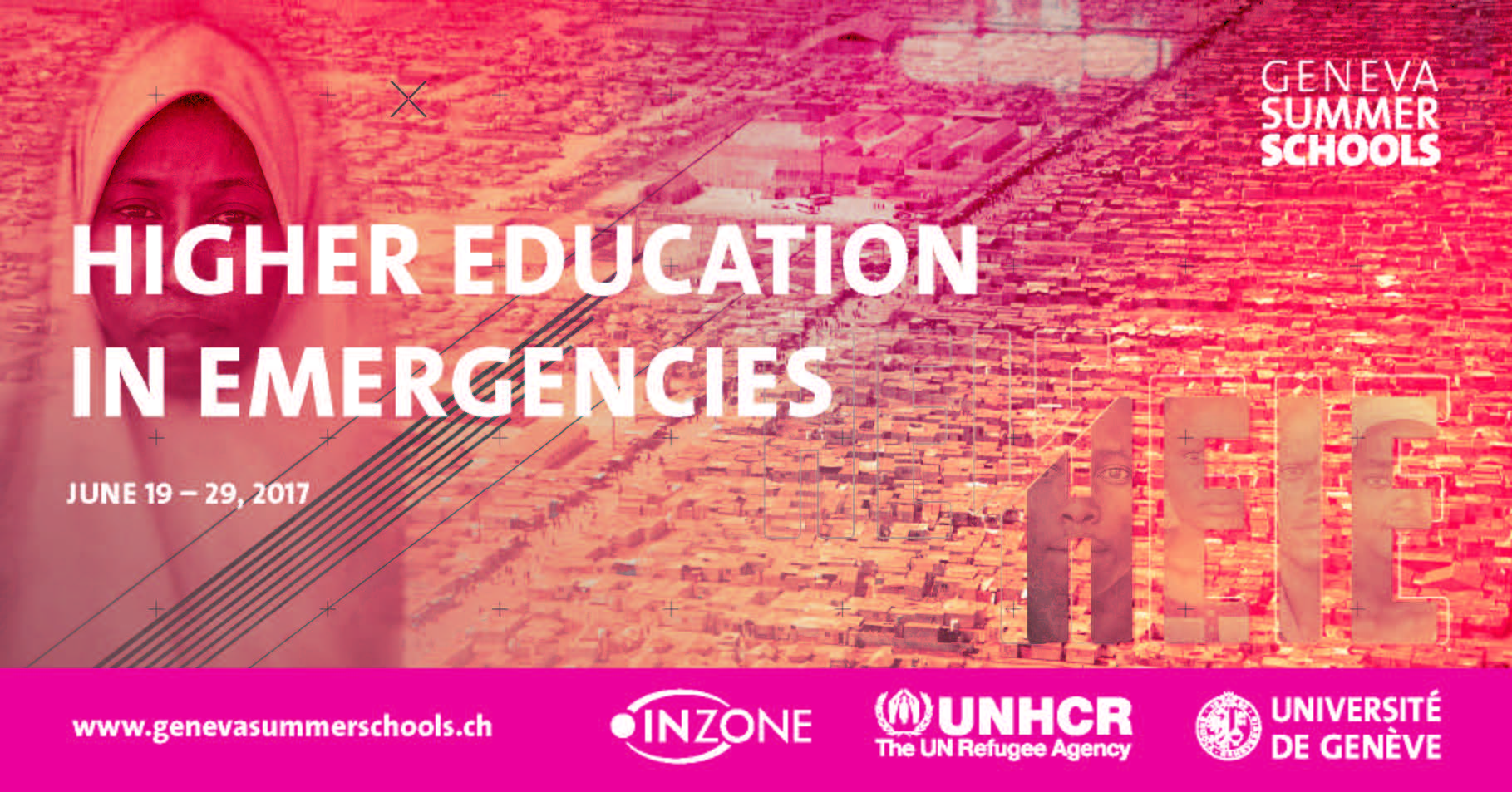
June 19 - 29, 2017
Application Deadline: June 12, 2017
Course description
Today the average conflict lasts 10 years, and families remain in internally displaced person (IDP) camps for an average of 17 years. While humanitarian programming often focuses on life-saving activities, the failure to prioritize education in general – and higher education in particular – leaves entire generations uneducated, developmentally disadvantaged, and unprepared to contribute to their society’s recovery.
The HEiE course will explore post-secondary education in emergency and protracted settings through the following 5 modules:
Module 1: International Law & Policies
Module 2: Foundations of Digital Learning
Module 3: Programme Design & Implementation
Module 4: Research in HEiE and Monitoring & Evaluation
Module 5: Capstone Projects
Participants will be provided with a conceptual framework for Higher Education in Emergencies (HEiE). Through this framework, participants will examine scenarios and design solutions focusing on four different, yet interrelated dimensions:
- Access to higher education and techno-pedagogical support, including on-site and virtual tutoring and mentoring schemes;
- Quality of virtual learning in fragility, including learning platforms, curriculum design, teacher and tutor training, accreditation and credentialing schemes, and partnerships with local universities;
- Mapping of higher education domains relevant to these learners within the framework of 21st Century Skills; and
- In-the-field management and implementation models.
The course will include high-level seminars with faculty and field experts, which participants will apply to real-world case studies (Capstone Projects) through collaborative learning, tutoring sessions and project presentations. They will also gain an understanding of how multiple pedagogical resources can be leveraged efficiently and effectively to produce sustainable outcomes in fragile contexts.
Learning outcomes
At the end of this course, participants will have developed a conceptual framework to be able to:
- understand the potential and limitations of HEiE;
- analyze emergency and protracted contexts to evaluate possibilities for implementing HEiE projects;
- assess the potential of different pedagogical models – including on-site and virtual delivery modes – to contribute to project outcomes and sustainability; and
- identify the humanitarian actors, including staff and beneficiaries, needed to jointly manage the multiple components of a HEiE project.
Assessment
Participants receive continuous formative and summative assessments for individual and collaborative learning activities embedded in the course. Collaborative work on real-world cases will allow them to test their knowledge and skills. Participants will also receive feedback from an expert jury on their solutions.
Academic Credit and Certificates
A certificate of completion will be awarded to those who complete the course.
You may be eligible for 4 ECTS (European Credit Transfer System) credits. Please see further information here.
Please note: Changes to the draft program may be made at any time prior to the start of the course.
Target Audience
This course is designed for:
- Humanitarian practitioners
- Graduate students and faculty in international relations, international education, and educational technologies
- Representatives of donor organizations whose mission and mandate includes education and higher education
- Representatives of Education Ministries
Tuition Fees
UNIGE students: 500 CHF (Only few places available. MA and PhD students only.)
Others: 2,700 CHF
Faculty & Staff
Faculty and speakers comprise field and academic experts from international programs including:
UNHCR – United Nations High Commissioner for Refugees - Jaqueline Strecker
InZone – Centre for Interpreting in Conflict Zones - Barbara Moser-Mercer, Emma Bonar, Erin Hayba, Josh Goldsmith
York University - Aida Orgocka, Don Dippo
Jesuit Worldwide Learning - Cindy Bonfini-Hotlosz
Australian Catholic University - Maya Cranitch
Kenyatta University - Phyllis Mwangi, Josephine Gitome
Contact: This email address is being protected from spambots. You need JavaScript enabled to view it.



